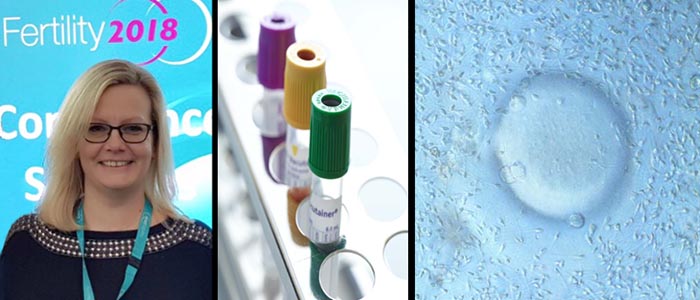6th February 2018
Thinking of having a Vasectomy? What you need to know before and after surgery
Dr Lucy Richardson BSc PhD
Laboratory Director
Follow the latest news and developments in the world of fertility.
< View all our fertility news and posts


6th February 2018
Dr Lucy Richardson BSc PhD
Laboratory Director
Vasectomy is one of the methods of contraception, also known as male sterilisation, which prevents the sperm from reaching the seminal fluid, when ejaculated from the penis during sex. The operation is minor (around 15min) and requires a cut, block or seal to be performed on the tubes that carry sperm from a man’s testicles to the penis.
Vasectomy should be considered as a permanent sterilisation, as although reversal is sometimes possible, it may not be successful. Even with a successful reversal, it still may not be possible to father a child. Cryopreservation of a semen sample prior to a vasectomy may be something you wish to consider if you wish to preserve your fertility; however, should this be the case it is important to discuss your reasons for requesting a vasectomy thoroughly with your clinician.
Before deciding on this procedure you will need to speak to your doctor about your circumstances. The doctor will provide information around the topic and counselling before agreeing to the procedure.
The decision to have a vasectomy needs to be taken only if you are certain that you do not wish to have any children in the future. In case you have any reservations, you should consider another method of contraception until you are completely sure about your decision.
The vasectomy can happen at any age, but, if you are under 30 years old and you do not have children, your doctor may be reluctant to perform the procedure.
Following a vasectomy, it is always recommended that a post-vasectomy semen analysis (PVSA) is performed to establish whether the surgery has been successful to achieve male sterilisation. Whilst it is rare that a vasectomy should fail, it is important that patients are tested to ensure that this is not the case.
The earlier the PVSA is performed after the vasectomy, the more likely a false positive result is – the presence of residual sperm may be found within the seminal fluid however these may be sperm formed prior to the vasectomy.
At Herts and Essex Fertility Centre, we adhere to a number of key guidelines to ensure accuracy of our testing. Firstly, PVSA testing must be undertaken a minimum of twelve weeks after the vasectomy and after a minimum of twenty ejaculations. Good practice guidelines also recommend that samples are analysed within four hours of production however at Herts and Essex we ensure that samples are analysed as soon as possible after production. For this reason, we have dedicated production rooms to ensure no delay in analysis following production which could otherwise affect the result. This will also help to ensure that the confirmation of vasectomy success may be performed with just one test, provided the above recommendations are met.
It will always remain the responsibility of the surgeon performing the vasectomy to counsel their patients both pre and post-operatively and results will be sent back to your referring centre within 48-hours of analysis.